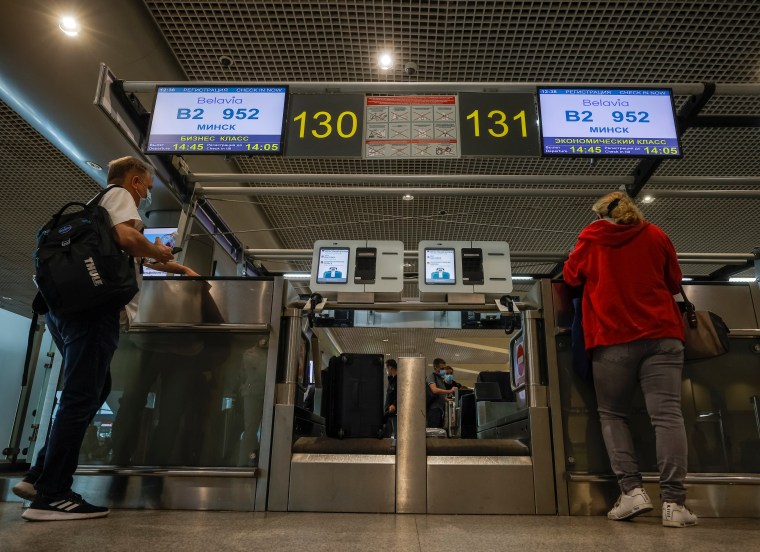New York, February 2, 2022 – Russian authorities should ensure that international journalists can work freely and safely and are not singled-out by new medical regulations, the Committee to Protect Journalists said Wednesday.
On December 29, 2021, new amendments to two laws – “On legal status of foreign citizens in the Russian Federation” and “On state fingerprint registration in the Russian Federation” – went into effect, which require foreign citizens staying in Russia for over 30 days to undergo medical exams every three months and submit fingerprints and a biometric photo to authorities, according to media reports.
“We are concerned about new Russian regulations that require foreign citizens to undergo quarterly medical check-ups because we fear they may be used against journalists assigned to cover the country,” said CPJ Europe and Central Asia Program Coordinator Gulnoza Said. “Authorities should ensure that the new regulations do not target members of the foreign press to stop them from working in Russia.”
President Vladimir Putin signed the amendments into law on July 1, 2021, and they went into force in December, Russian media reported.
According to the amendments, all foreigners and their family members aged six and up who stay in Russia for over 30 days are required to do medical check-ups including blood tests for HIV, syphilis, gonorrhea, tuberculosis, and COVID-19, among other diseases; the blood will also be tested for illegal drugs. Some tests may include x-rays and CT scans. The tests must be done within 30 days of a foreigner’s arrival in Russia and are valid for 90 days, and must be repeated within 30 days after that expiration.
Those who do not comply could have their work permits revoked and be expelled from Russia. Foreigners with positive test results can lose their residence permits or, if abroad, can be denied re-entry into Russia, the amendments state.
Other countries, including the United States, require COVID-19 tests or proof of vaccination for foreigners to enter; the U.S. also requires tests for diseases including tuberculosis, gonorrhea, and syphilis for those seeking to apply for immigration visas, but does not list those requirements for media or other employment visas.
Frank Überall, the national chairman of the Association of German Journalists trade group, called the regulations “yet another harassment by the Russian government against foreign media and organizations.”
In an email to CPJ, he said the rules would make it “more difficult” for German correspondents to work in Russia, and said they threaten press freedom because “the results of the [tests] can easily be misused to expel critical media representatives from Russia and thus suppress undesirable reporting.”
Before the new regulations, foreigners were required to present a negative HIV test when applying for a work visa or a residence permit to stay in Russia for longer than 90 days.
Diplomats and Belarusian citizens are exempt from the new requirements, according to the amendments.
Speaking to reporters on December 17, Kremlin spokesperson Dmitry Peskov said Putin was “in favor of creating the most comfortable conditions for foreign businessmen here, for foreign investors, foreign specialists,” media reported. Peskov also said the new regulations were the prerogative of the migration authorities and refused to comment further.
CPJ called the Ministry of Interior, but nobody answered the phone. CPJ also called the Multifunctional Migration Center in Moscow, which oversees foreigners’ medical checkups, but its answering service did not direct the call to an operator or press officer.
